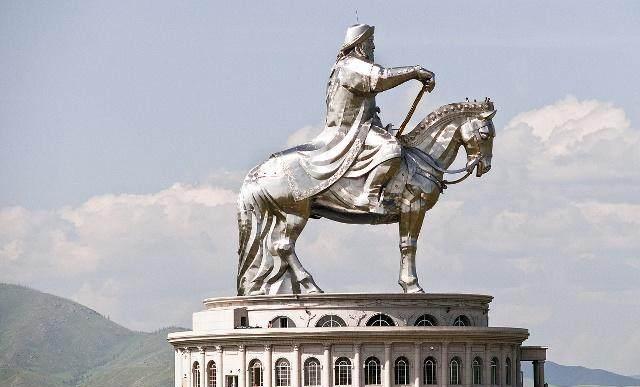Jebe (jebe, year of birth and death unknown), also written by Beibei, Only Beibei, the original name of the only child Isa, Mongolian Beisu Tibu people. The Betsuti clan had fought against Temujin with the Taichi Ubu and other clans, and Tetsubetsu was a subordinate of one of the tai chi Ubu chieftains, Baldo. In 1201, Temujin and Zamu joined forces in a battle at Kuoyata, and Tetsubetsu shot Tetsuki's white-billed yellow horse. In this battle, Temujin desperately won, Taichi Ubu weakened, and Tetsube finally defected to Temujin. Temujin asked who had shot his horse, and Tetsubetsu admitted, "If you spare me, give me my life, and go to the soup and go to the fire, I will not quit." Temujin thought he was honest enough to make friends, changed his name to Tetsubetsu (meaning Arrow), and asked him to "protect me like the 'Tetsubetsu' in front of me." Since then, Tetsubetsu has become a member of Temujin's command.

In 1202, when Temujin conquered the Tatar tribes, he first made an oath saying: When defeating the pursuit, do not take relics, and wait for the matter to be distributed. Afterwards, the tribesmen reneged on the promise of Bomb, Fire Cha'er, and Dalitai, and Temujin sent Tetsubetsu and Kubilai to take away all the livestock and property they had captured and distribute it among the troops. In 1203, when Temujin first established Theoshi, Tetsubetsu was already an important member.
In 1204, Temujin entered the battle and sent Kubilai and Tetsubetsu as forwards. At that time, Tetsubetsu, along with Kublai, Ji le contempt, and Subutai, was already famous for his "Dolbian Na Baosi" (four dogs), and was described as a fierce warrior with a "copper forehead, a chisel-like mouth, an iron heart, and an awl-like tongue". In this battle, Temujin won a great victory, killing the leader of the Naiman, Sun Han, and his son Qu Chulu (Gu Chu Luke) escaped. When Temujin established the Great Mongol State in 1206, accepted the title of Genghis Khan, and organized thousand households, Tetsubetsu was one of the 95 thousand household chiefs he appointed.
From 1211 onwards, Tetsubetsu made many achievements in the conquest of the whole country. In the winter of 1211, Tetsubetsu used the tactic of pretending to defeat and attacking to attack Juyongguan and rode into the Inner Mongolia tourism network outside jinzhongdu (present-day Beijing). The Jin army came to the aid, and Zhebei returned to attack the herdsmen and drove them back. In the winter of 1212, Tetsubetsu attacked Jindong (present-day Liaoyang, Liaoning), and then used the strategy of retreating back, retreating fifty times in a row, and then leaving a heavy weight, selecting fast horses, rushing day and night, and the surprise attack was successful. In July 1213, Zhebei attacked Juyongguan, and Genghis Khan divided his army into three routes and vigorously cut down gold.
In 1218, Tetsubetsu was ordered by Khan to attack the Naeman clan, which held the territory of the Western Liao. In response to the practice of forcing Islamists to convert, Tetsubetsu declared that "everyone can have their own beliefs and maintain the religious rules of their ancestors." So he won the support of the local population. Qu Chulu fled from Khazar (present-day Kashgar), and Jebetsu chased him to the place of Sarihuan (i.e., somewhere near Lake Selkule) to annihilate him. The captives who had surrendered to The Law of Qued were the governors of Kesan Basha, who had been thrown into zhebitsu in advance, and zhebei ordered him to hold the head of the law of surrender to spread everywhere, but the cities of Harr, Oshi'er (present-day Shache, Xinjiang), and Huiduan (present-day Hotan, Xinjiang) were returned to the wind. Upon his triumphant return, Tetsubetsu gave Genghis Khan a thousand white-billed yellow horses he had captured, fulfilling one of his promises, for when he defected to Temujin, he confessed to shooting the white-billed yellow horse and said, "Be gracious to me, I will bring many of these horses." In 1219, when Genghis Khan sent an army to the west, Zhebei was the vanguard, later aided by Subutai, and then aided by Tujuecha'er. When the soldiers were not stabbed (present-day Bukhara, Uzbekistan), both Zhebetsu and Subutai obeyed Genghis Khan's orders and marched without alerting Mahamad, but Dekucha'er disobeyed the order and plundered, so that Mahamad fled, and his son Zalandin confronted the lost ji kubhu and rushed to Genghis Khan's camp. Tetsubetsu and SuButai and Shu Cha'er killed back, which changed the situation of the war.